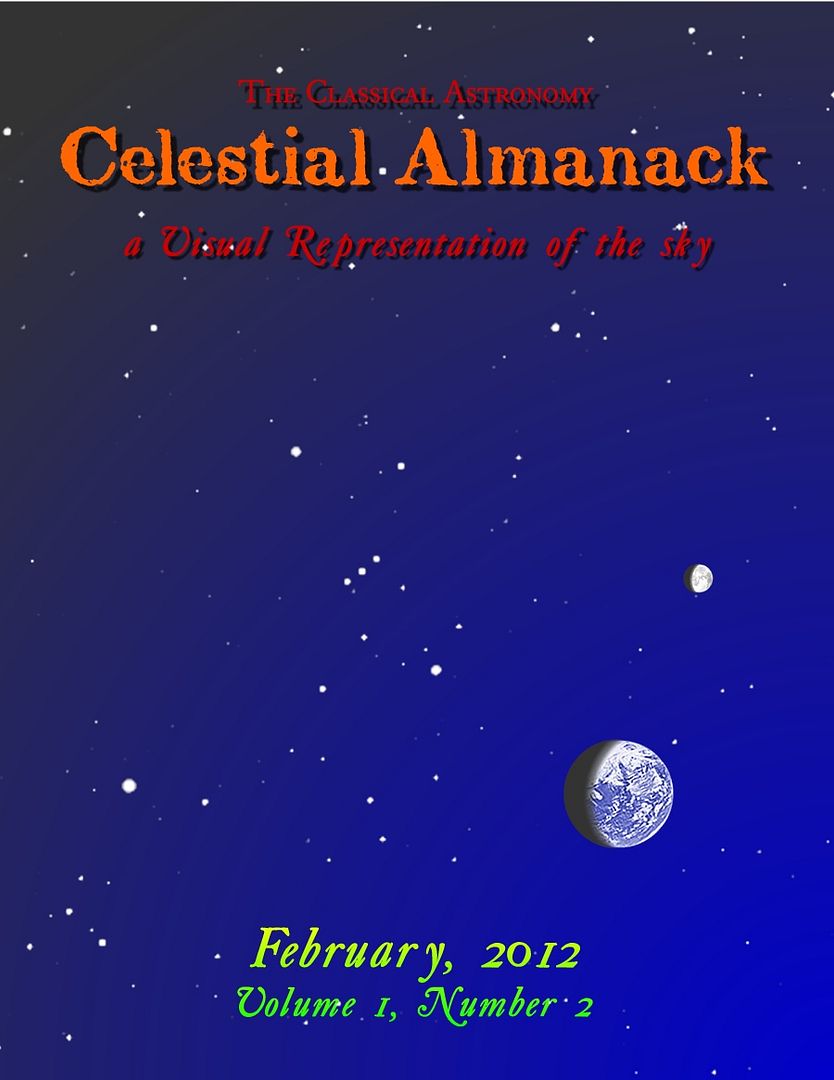The first thing that jumped out at me was the title page. It is designed after Poor Richard's Almanack by Benjamin Franklin. For example, it shares that this publication is about the "visual representation of the sky, particularly for Observers in the United States of America, but usable by persons of all Longitudes and Latitudes, especially such persons North of the Equator." I really just enjoyed the old-fashioned language that shared modern information.
- an astronomical calendar for the month of February - including some fun fact dates such as President Regan's birthday.
- Signs of the Seasons
- Seasonal Skies - evening with star charts and explanations on how to find each one
- Dance of the planets
There are wonderful illustrations included throughout that help visual learners - like myself - find what is being explained. This is not simply a book full of star charts, but it contains information about how the sun, moon and stars are interacting each day.
Included in the alnanck are also "one-star activities." These are easy to do activities that do not require additional equipment. Mr. Ryan walks the observer through locating Orion, Taurus, Canis Major, Auriga, Perseus, Gemini, and Canis Minor. This is not inclusive as to what is contained in the almanack. There is far more information about even more to find in the night sky.
I found the Celestial Almanack to be choke full of information. It was presented in a way that even those not familiar with astronomy can find not only constellations, but also planets. Most activities presented were "one-star" which meant the casual observer could find it in the night sky with just the naked eye. A few harder activities were also included.
Mr. Ryan created this monthly publication in order to get families looking towards the sky. Over the course of the next six months there will be some once-in-a-lifetime opportunities that he wants to be sure people know about. They include:
- the Jupiter-Venus conjunction on March 15 (occurs once every 24 years),
- the annular solar eclipse on May 20 (occurs once every 18 years), and
- the transit of Venus on June 5 (the last time until 2117!)
Overall I thought this was an excellent resource. And for only $3, it is also very economical. It would be a fantastic addition to any astronomy study.
Be sure to head over to the TOS Homeschool Crew and see what other Crew members had to say about the February edition of the Celestial Almanack.

Disclaimer: I was not paid for this review. All opinions shared are my own. TOS Crew Members are given the product free of charge in exchange for our unbiased opinion of the product.



No comments:
Post a Comment
Oh thank goodness! I'm not here all alone. Thanks for leaving me a comment. It helps that I'm not always talking to myself. Right? Hello?